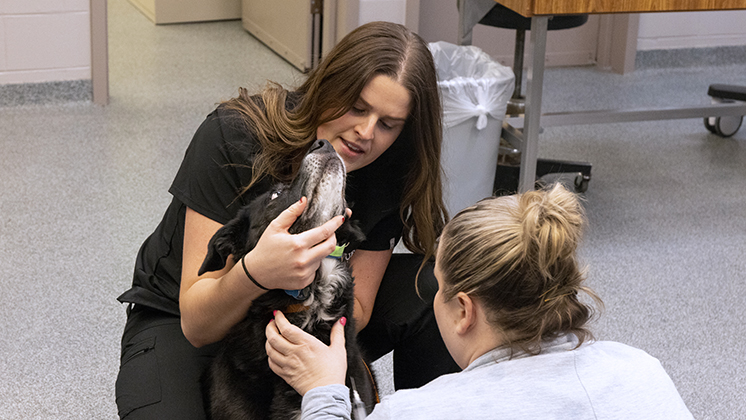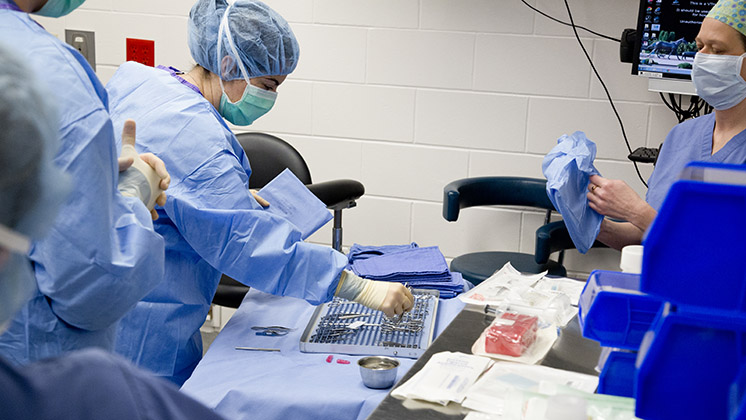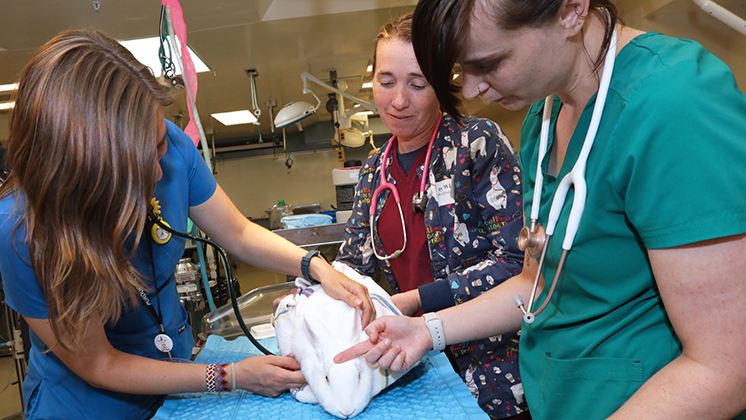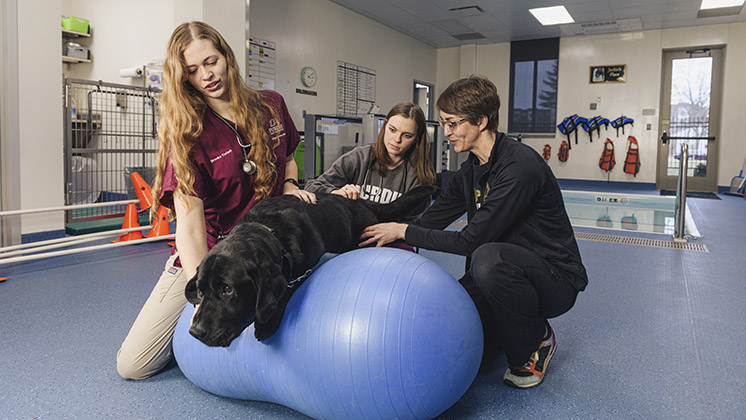
by Paige Allen, MS, RVT and Josh L. Clark, MS, RVT
Succeeding academically in vet tech school requires dedication, organization, and a strong work ethic. It is also important to enjoy math and science. Veterinary medicine is based in chemistry, biology, and math. The ability to communicate with pet parents and coworkers is vital to being a part of the veterinary healthcare team. Here are some strategies to help you earn good grades and make the most of your educational experience:
This might seem obvious, but attendance is crucial. Lectures and labs provide vital information that you can't get from just reading textbooks. Plus, active participation can reinforce your understanding and make you more familiar with the course material. Many students in veterinary medicine learn best by performing hands-on skills and if you are not in class or lab, it is hard to replicate those learning situations.
Keep track of all assignments, quizzes, exams, and project due dates. Use a planner or digital calendar to ensure you never miss a deadline. Staying organized also involves managing your study materials, so keep your notes, handouts, and textbooks tidy and accessible. Course work can be demanding and contain a lot of information. Figuring out how you learn best and how you retain information is vital.
Effective note-taking can greatly enhance your understanding of the material. Don't just write down what's on the slides; listen to the lecture and jot down any additional information the professor emphasizes. Consider reviewing and rewriting your notes after class to reinforce the material. Research shows that writing information down is helpful in retention of knowledge.
Don't be afraid to ask for help if you're struggling with a concept or an assignment. Reach out to your advisor, professors, teaching assistants, or classmates, or consider seeking help from a tutor. Remember, everyone is here to learn, and there's no shame in needing a little extra clarification or assistance.
If you’re attending Purdue’s Nursing Program, you can contact Purdue Veterinary Medicine’s Student Success Center to get in touch with someone who can help. Everyone at the college is here to support your learning, but you need to reach out and ask for help.
Studying in a group can be very beneficial. You can discuss difficult concepts, quiz each other, and learn from different perspectives. Just make sure your group stays focused and on task. These groups can be in-person or online.
Time management is key. Allocate specific time slots for studying, but also make sure to include breaks. Overworking can lead to burnout, and regular breaks can actually improve your focus and productivity. It is important to work on your coursework every day so that you retain the material. Research shows that shorter, more frequent study sessions are more effective than a single long session. The lesson here is that “cramming” doesn’t really work.
Staying physically healthy can improve your academic performance. Ensure you're getting enough sleep, eating well, and exercising regularly. Additionally, practicing stress management techniques like meditation or yoga can help maintain your mental health. It can be hard to prioritize things like this, it is important for your overall learning and wellness.
Don't wait until the night before an exam to start studying. Regular review can help reinforce what you've learned and reduce the stress of cramming. This is particularly important in a field like veterinary technology, where cumulative knowledge and skills are critical. What we mean by this is that biology and chemistry are foundational knowledge for topics like pharmacology, clinical pathology, and diagnostic imaging. In addition, algebra skills are necessary for medical calculations.
Seek out opportunities for hands-on practice. This could be through labs, internships, or part-time jobs. Applying what you've learned in a practical setting can deepen your understanding and make your studies feel more relevant and rewarding.
Getting good grades in vet tech school is a combination of diligence, organization, and active engagement with the material. Remember, your education is not just about grades, but also about developing the knowledge and skills you'll need to succeed as a vet tech and provide your patients with the best care possible. Enjoy the learning process and strive to do your best, and you'll be well on your way to a successful career.
We care about your success and well-being at Purdue. Check out these helpful resources:
Student Success: Purdue Vet Med’s Student Success Center can be a helpful first step to point you in the right direction - whatever your question may be. We can’t help if you don’t let us know!
Clubs: Form a study group or get hands-on experience through involvement in Purdue Vet Med student organizations that focus on different aspects of veterinary care.
Tutors: Find a tutor through the Veterinary Student Resource Center (VSRC)
Counseling and Wellness: Purdue Vet Med’s Counseling and Wellness Services (CWS) promotes students’ emotional well-being, academic success, and healthy relationships through culturally-responsive care.
Find your calling as a Purdue Veterinary Nurse!
Not quite ready to apply? Connect with us to learn more.

Are vet techs and vet nurses the same? They are often used interchangeably, but is each one unique? Learn about the history of the titles, their job duties, and about the growing movement to transition exclusively to vet nurse.
Read more
Delve into the distinct roles of veterinary technicians and veterinary assistants in animal healthcare. Highlighting differences in education, job duties, scope of practice, and compensation, this guide offers a clear comparison to help aspiring professionals choose their best-fit career path in veterinary medicine.
Read more
Understand the diverse acronyms used to represent veterinary technicians, from LVT to CrVT. Uncover the nuances between these titles, their state-specific usage, and understand that while the acronyms vary, the dedication to animal care remains consistent across all credentialed vet techs.
Read more